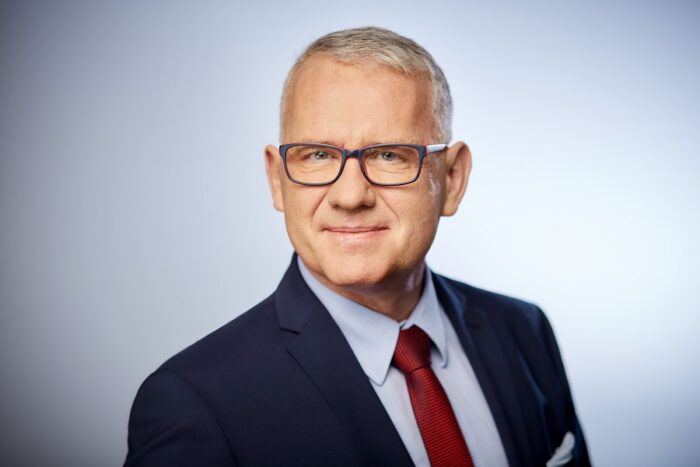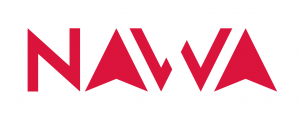Henryk Borczyk – Vice-President of the Management Board of the Metropolis GZM talks about the Metropolis
Can you tell us something about Metropolis GZM and what meaning it holds for the citizens of our region?
Henryk Borczyk: Metropolis GZM is the first institution of its kind in Poland. It was six years ago, and it twins 41 neighbouring cities and communities of the Silesian Voivodship. There are 24 higher education institutions in the Metropolis. It has almost 90 thousand students, including nearly 2000 foreigners from about 100 different countries. Our aim – as in the case of any other metropolis in the world – is to make the life of our citizens easier by increasing the quality of different public services. One example of such a service is public transport.
What are the main advantages of studying and working in the Metropolis GZM?
H.B.: Metropolis GZM gives its citizens exceptional possibilities. One of them is a chance to participate in workshops and consultations led by the world-class scientists who work for universities with the leading positions in prestigious rankings. This is the primary area of activity of the Metropolitan Science Support Fund (Metropolitalny Fundusz Wspierania Nauki). As part of the Fund, we provide financial support also for students and doctoral students. The Fund has been created because we know the significance of high level higher education and the attractive scientific and didactic offer of the Metropolis. Moreover, universities have a great city-creating potential. Through our engagement in the Fund, we want to create favourable conditions for personal and professional development and, by doing so, attract the scientists and young citizens to plan their future as bound with our cities and communities.
Have you observed an increase of people who come to study or work within the Metropolis GZM in the last few years?
H. B.: From our survey concerning the situation of foreigners in our region, we can see a very interesting phenomenon. Although the survey has been conducted during the time between the pandemic and the outbreak of war in Ukraine, it allows us to observe the inverse migration trend. The number of people coming from abroad to work in Poland is greater than the number of Poles leaving the country in search of work. Rafał Cekiera, PhD – sociologist from the University of Silesia in Katowice and the author of the report, together with the Pro Silesia initiative, prepared notes stating that around 40% of these people want to stay in our voivodship. It shows that we are not only a transit area on the way to other countries. 40% is quite a lot. The respondents often emphasised that, although they decided to work here as a result of different circumstances, or it just turned out this way, they are surprised with what our region has to offer. They say that the costs of living are lower than in other regions of Poland. However, the possibilities of professional development, attractive job offers and easy and comfortable public transport, as well as the wide range of free-time activities, are greatly attractive and comparable to other, more popular parts of the country.
What kind of help is offered to the people who come to Metropolis GZM from other parts of Poland or from abroad in order to make it easier for them to adapt to living here?
H. B.: Onboarding our new citizens coming to us from other parts of Poland or from abroad to start work, set up a business or get their education in the Metropolis is very important to us. We are aware that it is vital for them to be able to feel “at home” here. We are in the process of preparing the standards of integration for foreigners in our Metropolis, which also include onboarding. We are working on those standards in cooperation with numerous non- governmental organisations, businesses and universities.
What are the plans of Metropolis GZM regarding the infrastructure development, including improvements dedicated to students and employees coming from other regions and foreign countries? What are the future initiatives of the Metropolis?
H. B.: From the moment the Metropolis was established, we have been developing the integration of public transport between the cities in order to make moving around the Metropolis as easy as possible. We are building an efficient and sustainable urban mobility system. It will be based on the railways, which are the most ecological and the fastest means of transport in agglomerations. We already have tickets that allow to commute both by railways of the local railway transport provider, and by public transport of the Metropolis. We financially support the activation of the additional train connections, so that the trains run more often. Until all tracks are ready, we activate bus connections that facilitate commuting within Metropolis GZM until the Metropolis Railways are created. Another important element of the public transport system will be the Metropolitan Bike as, in our opinion, bike is the best mean of transport, especially for covering short distances within the city. Soon we will start building the first part of the bike lanes (their planned length is 120 km) – fast, non-collision lanes separated from the motor traffic. It was important to us to provide a vehicle, hence the Metropolitan Bike, and to have a road – that is why we plan to build the bike lanes. Speaking about the infrastructure, we are also considering introducing the integrated system solution. Thanks to that, purchasing the ticket for different means of transport would be possible in one mobile application – Transport GZM.
Henryk Borczyk, Vice-President of the Management Board of GZM Photo by Dariusz Iwański | Metropolis GZM press materials







